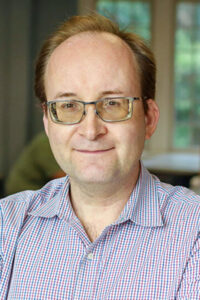Four faculty members from the Tickle College of Engineering have been elected fellows of the American Association for Advancement Sciences (AAAS), the world’s largest general scientific society and publisher of the Science family of journals.
UT-ORNL Governor’s Chair Professor Rigoberto Advincula, UT-ORNL Distinguished Scientist/Professor Director Takeshi Egami, Weston Fulton Professor Sergei Kalinin, and Dongarra Professor Michela Taufer are among the 2023 class of 502 scientists, engineers, and innovators across 24 AAAS disciplinary sections to receive the honor.
AAAS Fellows are a distinguished cadre of scientists, engineers and innovators who have been recognized for their achievements across disciplines ranging from research, teaching and technology, to administration in academia, industry, and government, to excellence in communicating and interpreting science to the public. The AAAS Fellows program is celebrating its 150th anniversary.
Takeshi Egami
Department of Materials Science and Engineering

Egami is a UT-ORNL Distinguished Scientist, professor, and director emeritus of the Shull Wollan Center/Joint Institute for Neutron Sciences. He is a past recipient of the American Crystallographic Association’s Bertram Eugene Warren Diffraction Physics Award.
Early in his career, Egami realized that most theories and experimental tools in condensed-matter physics and materials science were developed for crystalline materials. “But liquids, glasses, and humans, too, are not crystalline. Water in particular is vital for life, yet it’s still a mystery in its physics,” he said. “It is an important target for me.”
Egami developed new approaches to study the atomic structure and dynamics in disordered systems using X-ray and neutron scattering by transforming the data from reciprocal space to real space. He has also developed theories on liquids and glasses.
“I’m grateful to UT, ORNL and the Department of Energy for enabling me to focus on fundamental liquid-state physics,” he said. “I believe it’s important to continue fundamental yet out-of-the-box research to take us to the next stage. Bringing the study of disordered systems into the realm of biology is a new horizon for exploration.”
Sergei Kalinin
Department of Materials Science and Engineering

Kalinin also serves as the chief scientist working in artificial intelligence and machine learning for the physical sciences at Pacific Northwest National Laboratory. Before joining UT, he spent a year with the Amazon special projects team, exploring real-world industry challenges firsthand. Earlier, he spent 20 years at ORNL.
“I use machine learning to solve problems in physics,” Kalinin said. “Connecting machine learning with real-world materials and devices requires a combination of skill sets. I have been very lucky to work with strong collaborative teams at the national labs and at UT.
“Together, we are integrating machine learning and microscopy to enable a new generation of materials and accelerate the discovery process. It provides what had been a missing link between synthesizing new materials and characterizing them to figure out what we made and why they are useful.”
Kalinin has contributed to multiple types of advanced microscopy, including multifrequency scanning probe, electromechanical, piezoresponse force, and electrochemical strain microscopy.